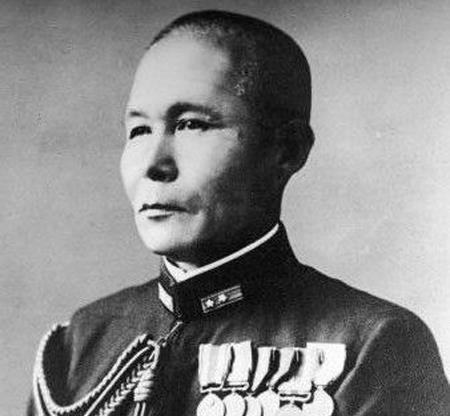At the end of World War II, Japanese militarists trumpeted the so-called "jade crush" spirit and called on everyone to be loyal to the emperor and dedicate themselves to Japan. Although this kind of rhetoric sounds grandiose, if you think about it carefully, it is just a coward who died to avoid the responsibility of the war.
Unlike these cowards, Jizaburo Ozawa, the last commander of the Japanese Combined Fleet, once told his subordinates when Japan surrendered: "We can't die yet!" Wars are waged by our generation, and if we die, who will be held responsible? ”

It has to be said that such words were inappropriate in the historical environment of Japan at that time, and for this reason, Ozawa Jizaburo was once ridiculed, but time has proved everything, and Ozawa's choice finally won people's respect.
Well, back to the main topic, let's see who today's protagonist, Jizaburo Ozawa, really is.
Speaking of the more well-known commanders of the Japanese Navy, everyone knows Yamamoto Isoroku, Yamaguchi Tatsumi, Minamiun Tadaichi and others, but Ozawa Jinzaburo is rarely mentioned. Is it because he is not strong enough? Of course not, everyone who has worked with Jizaburo Ozawa has admired his ability.
At that time, Yamashita Was able to sweep across the Malay Peninsula thanks to the escort of the naval fleet led by Jisaburo Ozawa, as well as the "shuttle bombing tactics" he invented, as well as the idea of aviation organization built around aircraft carriers, etc., which have been passed down to this day and have become an important part of modern military theory courses.
So why is Jisaburo Ozawa, who has such a talent, not famous? Simply put, it is bad luck and suppression by superiors.
Ozawa's immediate boss is Admiral Isoroku Yamamoto, yamamoto is a man who is not small, but he is also a very conceited guy, so although he often listens to Ozawa's opinions, he refuses to promote him.
After Yamamoto's death in 1943, the title of Commander of the Combined Fleet fell to Koga. Originally, both of them graduated from the Edajima Naval Academy, but Koga was 10 months earlier than Jinzaburo Ozawa, that is, the relationship between senior and apprentice, so in the Japanese Navy, which has always valued generations, Ozawa Jinzaburo has no reason to compete with Koga.
In this way, Ozawa Jizaburo waited until the late stages of the Pacific War to finally have the opportunity to perform, however, the current war situation has made it difficult for him to make a difference.
In June 1944, as the commander of the mobile fleet, Ozawa Participated in the Battle of Mariana and personally finalized a detailed battle plan, but in the face of the strong firepower of the US army, it was difficult to deploy, and in the end, it could only be defeated, leaving the laughing stock of "Mariana Turkey Hunting".
Ozawa proposed his resignation in anger, but the discerning people knew that the failure was not blamed on Ozawa's head, and he had tried his best, so the Japanese military department not only rejected his resignation, but instead proposed to promote him to admiral in May 1945. Although Ozawa refused the title of admiral, in gratitude he agreed to serve as the last commander of the Combined Fleet until the end of the war.
In the post-World War II trial, Jizaburo Ozawa was released only after a symbolic punishment due to his long period of subordination to the second line, with little interference in the most intense phase of the Pacific War, coupled with his good confession.
After that, Jisaburo Ozawa refused the invitation to go out of the mountain again, but instead calmed down to reflect on the war until his death in 1966, living for 80 years.
It is said that when Emperor Hirohito heard of his death, he gave his family 7,000 yen for funeral expenses, and at the current exchange rate, 7,000 yen is equivalent to 437 yuan. The emperor of Japan is also too stingy!